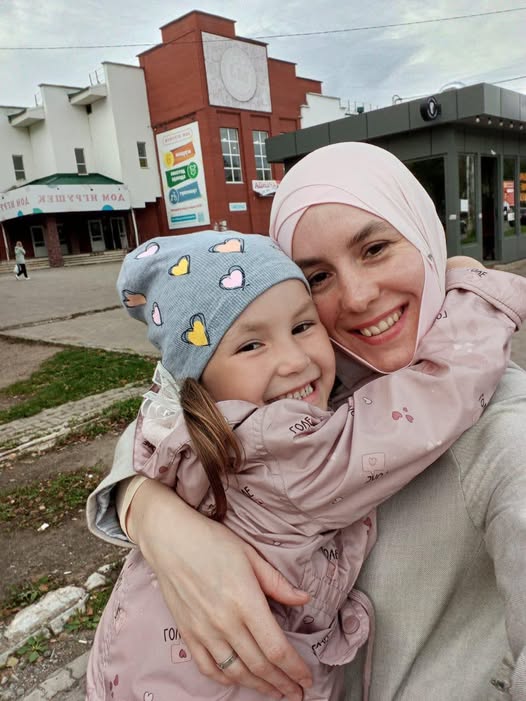Latifa Malakhova completed her 4.5-year prison sentence and was released from Correctional Colony No. 3 in the village of Dvoybratsk in the Ust-Labinsk district, according to information provided by Crimean Tatar journalist and human rights defender Lutfiye Zudiyeva via Facebook. Malakhova now resides in occupied Simferopol with her daughter.
On 14 February 2021, both Latifa Malakhova and her husband were detained by FSB officers in Kazan and subsequently transported to Crimea for a hearing to determine their preventive measures. Their one-month-old daughter, Melisa, was brought to court with them.
On 7 July 2021, the Southern District Military Court in Rostov-on-Don convicted Malakhova under Article 205.1 of the Russian Criminal Code (supporting a terrorist organization). The court found her guilty based on charitable activities and the collection of funds through the internet. She was sentenced to four and a half years in a general-regime prison colony.
Despite completing her sentence, Malakhova remains under probationary conditions for one additional year. These restrictions include a prohibition on leaving Simferopol, a nighttime curfew from 10 p.m. to 6 a.m., a ban on attending public gatherings, and a requirement not to change residence or employment without permission from probation inspectors. She must also register with authorities twice monthly and submit to unannounced inspections.
Health Deterioration During Incarceration
The period of imprisonment took a physical toll on Malakhova. She reported stomach problems, persistent headaches, and a weakened immune system. During her time in prison, she lost 12 kilograms.
Describing the early part of her incarceration, Malakhova stated: "The first year and a half were very difficult. It was hard to adjust both morally and physically. Then I took hold of myself—sports, reading, proper nutrition. But my health still suffered."
Religious Restrictions in Prison
While Malakhova reported that she did not experience physical abuse or torture during her imprisonment, she faced restrictions on her religious practice. She was placed in punishment isolation twice for performing namaz (obligatory Islamic prayer) at her workplace. Following these incidents, she negotiated with prison administration to conduct prayers during breaks.
Malakhova spent several weeks following her release with her husband's relatives in Bashkiria before moving with her daughter to a rented apartment in Simferopol. Her daughter remained with family members throughout the entire period of her mother's incarceration.
Reflecting on the separation, Malakhova said: "This is very difficult. Especially to be far from family and from my child. Thank God, I am home now."
Malakhova's husband, Ruzil Yapparov, continues to remain in detention. The couple's legal cases were heard separately.
Repression of Crimean Tatars by Russian occupation authorities
Russian authorities in occupied Crimea repress Crimean Tatars severely due to their resistance to occupation. Tatars face mass arrests, fabricated terrorism charges, raids, and imprisonments—many sent to faraway Russian prisons. This repression aims to silence political dissent and weaken their community. The treatment includes denial of fair trials, psychological pressure, and cultural persecution, reflecting Russia's goal to eliminate opposition and consolidate control over Crimea.
Repression of Crimean Tatars by Russian authorities began sharply with Russia's annexation of Crimea in 2014. Before 2014, the Crimean Tatars, as indigenous residents of Crimea, faced less systematic persecution under Ukrainian sovereignty, although their history includes past suffering notably the 1944 Soviet deportation.
After 2014, Russian occupation triggered mass arrests, forced disappearances, raids, and bans on Crimean Tatar organizations like the Mejlis, with many Tatars fleeing or becoming internally displaced. Their cultural rights, media, and education in their language were heavily restricted.
Following Russia’s full-scale invasion of Ukraine in 2022, repression intensified further, spreading violence and arbitrary detentions deeper into occupied territories, exacerbating the Crimean Tatars' trauma and displacement




